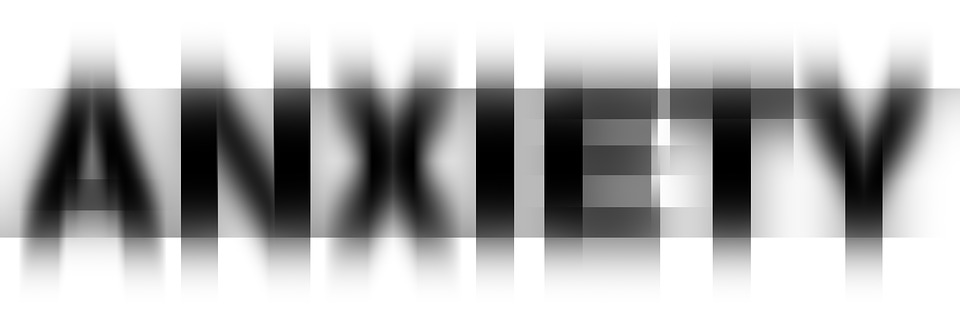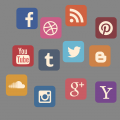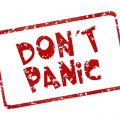Table of Contents
The meteoric rise of social media anxiety use has led to significant changes in how we lead our lives and interact with one another. Indeed, it is difficult to remember what life before social media is like. That life seems so out of reach now, when everyone and their parents seem to have a social media account, one way or another.
Social Media Anxiety and Digital Landscape
Social media anxiety has completely redefined the digital landscape, providing a way for us to share moments with each other and create connections like never before. When before you’d have to keep an address book for your friends’ contact information, now you simply have to click and shoot a quick DM. Remembering birthdays and anniversaries is made far easier as well. Even quick random moments and thoughts you’ve had and posted could be simply tracked with Facebook’s On This Day feature too.
It’s easy to see how social media has opened up a whole new world for us. It is a large part of the social and emotional development of the millennial generation, and it’s even more so for the generation that came after them, Gen Z, who were born smack right in the social media anxiety boom.
Open World Access
Through social media, a whole host of information can be accessed, and we can connect with the people providing those information as well. Social media platforms are a hotspot for community engagement and provide a great avenue for free exchange of ideas, ideologies and experiences.
However, with these good things come the bad as well. One of these is Social Media Anxiety Disorder, a phenomenon that is more or less exclusive to millennials and Gen Z. In the US, social anxiety disorder is the third most common psychological disorder, coming after alcoholism and depression at 13-14 % of the population. Social media anxiety is a more specialized form of general social anxiety, emerging mostly due to exposure to a digitally dependent society.
The Paradox
An individual who use social media may dread interacting with other people on the platform out of self-consciousness. They may feel that they are being judged or evaluated, and through these feelings, feelings of inadequacy or embarrassment may crop up. It may then lead to an inferiority complex or depression. Indeed, social media is not only way to make connections but to seek approval as well. When that approval is not gained, it may be a huge blow to a person’s otherwise fragile self-confidence.
It is sort of paradoxical, how something that aims to make connections easier can end up becoming the reason people may feel excluded. Indeed, based on a study by Dr. Ethan Kross and a research by the University of Missouri, there is a direct connection between heavy social media use and feelings of depression. This may be due to the fact that social media use has hindered our ability to make face-to-face connections and opting to do our talking digitally.
Feeling Lonely?
Aside from feelings of loneliness, there might also be feelings of envy as well. This is due to the constant bombardment of posts and updates about people who seem to be living lives far better than ours. There’s a reason why Instagram has boomed as fast as it did; we as a society tend to make comparisons to the point of obsession. We end up having unrealistic expectations of where we should be in life at this certain point, and when that expectation is not met, we think of ourselves as failures.
Social Media Anxiety: How Do We Shift Our Priorities?
Social media is the world’s greatest distraction right now. Endless scrolling through endless content has become a habit, whether you’re on the train commuting or waiting in line for the movies or simply lounging about in your home. What start as a quick check-in on Twitter can lead to an hour-long binge of compilation videos on YouTube. A simple IG Stories click could lead to a full shopping cart.
So how do you use social media smartly to cope with your anxiety?
Assess how social media use has been affecting your day-to-day life.
If it’s eating up a huge portion of your time that could have been otherwise allotted to other endeavors, then maybe it’s best to cut back. You could instead use social media as a reward for getting something done in the real world. Read a book for two hours, scroll through Twitter for 10 minutes. This could help curb your social media addiction. Remember to do it in increments too; if you’ve known yourself to lose track of time in social media, immediately cutting yourself off from it may have worse effects.
Remind yourself that not everything you see on social media is all there is
Of course when people post, they want to have their best foot forward. Most only share the beautiful, the grand, the nice; you’d hardly see what goes on behind the scenes. So try not to compare what others have, and don’t make others your standard for living.
In the end, social media anxiety should be your tool for connectedness, not your way of life. If your social media use is stressing you out, then don’t be afraid to take time away from it. Give yourself space to grow in the real-time world and perhaps you’ll feel lighter and less burdened.






 I love to write medical education books. My books are written for everyone in an easy to read and understandable style.
I love to write medical education books. My books are written for everyone in an easy to read and understandable style.